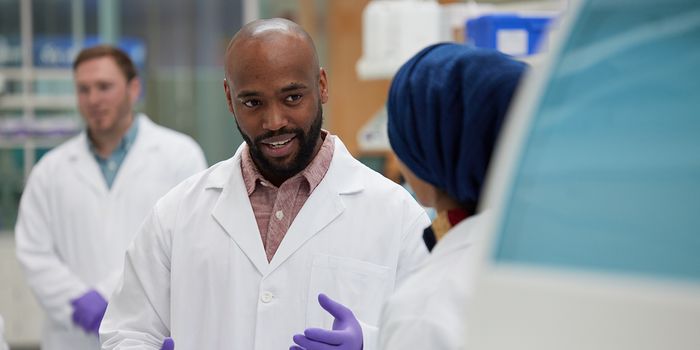Anorexia is Caused by Genetics and Gut Bacteria
Although usually considered a purely psychiatric disorder, recent research has uncovered that anorexia nervosa may have other underlying causes. From genetics to healthy gut bacteria, these findings shed light on why traditional ways to treat the condition, typically involving cognitive interventions such as medications or psychotherapy, successfully treat patients only around half of the time.
Given current low success rates to properly treat the condition, as technology and scientific understanding has developed, other possible sources for the disorder have undergone research. To understand whether there are genetic causes for this condition, researchers analyzed data from 16,992 cases of anorexia nervosa and 55,525 controls from 17 countries across North America, Europe and Australasia (King’s College London: 2019).
Once finished, the researchers reported eight genes that linked anorexia to anxiety, depression and obsessive compulsive disorder. Although expected, it also revealed genes involved in regulating metabolism- or bunning fat, being physically active and being resistant to type 2 diabetes, something that may in particular explain the tendency for people with anorexia nervosa to be highly physically active. (Sample: 2019)
The study, building upon others, shows that anorexia nervosa is the result of an interplay between physical and psychiatric factors, something that gives justification to develop new treatments (Macandrew: 2019). Dr Gerome Breen, one of the study’s leaders commented, “Our analyses indicate that the metabolic factors may play nearly or just as strong a role as purely psychiatric effects. (Sample: 2019)”
This conclusion in particular supports other findings linking psychiatric illnesses to gut bacteria via the “gut-brain axis”, or how the trillions of microbes that make up our gut microbiomes interact with our nervous systems via numerous pathways including neurotransmitter signaling and neurotrophic factors (relating to the growth of nervous tissue). In particular to anorexia and other eating disorders, a vicious cycle relating to gut-brain communication influences its effects.
The disrupted pattern of food consumption changes the gut microbiome, which causes dysbiosis, or a microbial imbalance, and decreased microbial diversity. This then begins to affect one’s metabolism, as well as their hunger and satiety. These metabolic changes then contribute to further dysbiosis, depression and other psychological problems, which in turn, feeds back into poor eating habits, thus reinforcing the eating disorder’s vicious cycle (Viome: 2018).
This, taken with genetic predispositions, explains why it is often difficult for those trying to recover from the condition. After all, sufferers of anorexia not only have a higher genetic propensity for depression and other psychiatric disorders, as well as a higher drive to engage in physical activity, but their eating habits create a microbiome that further fuels poor mental health, and that is incapable of properly digesting foods once they are reintroduced.
This in mind, it becomes logical that treatments for the disorder should go beyond psychotherapy, and also encompass diet- or how to recreate a healthy microbiome. Although psychotherapy still seems to have a significant role top play, genetic predispositions towards further mental health issues, and the knock-on effects microbiota tiggers have on the condition should be taken into account too to create a more holistic treatment plan.
Sources
King’s College London, Science Daily
Sample, Ian: the Guardian
Macandrew, Ruby: Stuff










